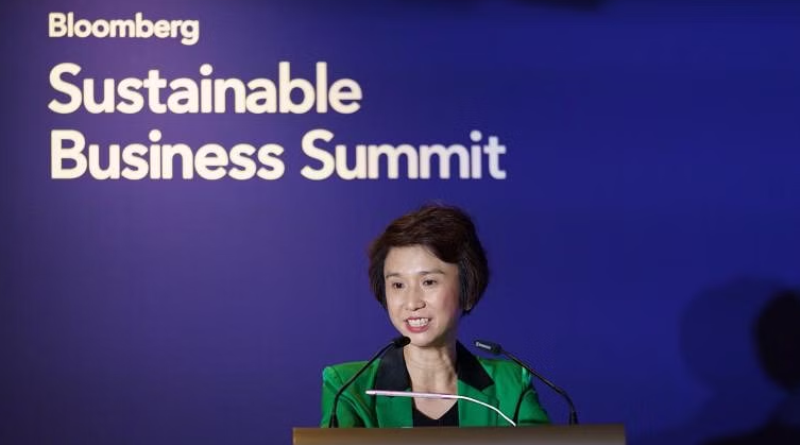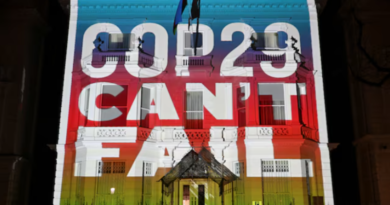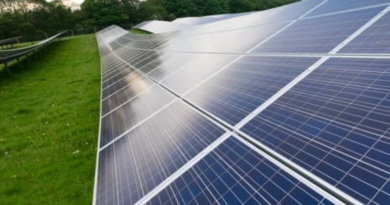National alliance launched to help companies access quality carbon credits
SINGAPORE – A national platform that will help “match-make” developers of carbon credit projects with potential buyers of such credits was launched on July 31.
The Singapore Carbon Market Alliance (SCMA) will help buyers keen on sourcing high-quality credits identify reliable projects, as it will be dealing with projects that supply credits compatible with the Paris Agreement.
Singapore-based corporates could buy these credits to advance their climate goals and offset part of their carbon tax.
One carbon credit represents one tonne of carbon dioxide (CO2) that is either prevented from being released into or removed from the atmosphere. These credits are created through renewable energy projects and other initiatives such as forest conservation, mangrove restoration and replacement of wood-burning stoves.
The SCMA is a collaboration between the Economic Development Board (EDB) and Ieta, a non-profit group that represents businesses committed to smart, well-designed and effective carbon markets around the world.
High-quality credits are aligned with the Paris Agreement’s Article 6, which governs carbon trading between countries. A key criterion is that steps must be taken to prevent double-counting of emission reductions in both the credit buyer and the host country’s national greenhouse gas inventories.
The credits should also come from projects that are of high environmental integrity. For example, in calculating the amount of emissions removed by a mangrove planting project, the calculations must be made in a conservative and transparent way, and measured and verified by an independent third party.
A project must not result in carbon leakage elsewhere, and the emissions removed and reduced should not be reversible.
Senior Minister of State for Trade and Industry Low Yen Ling announced the launch of the SCMA at the Bloomberg Sustainable Business Summit on July 31. She said Singapore is pursuing the bilateral trade of carbon credits with more than 20 countries, including Kenya, Rwanda, Paraguay and Mongolia.
Two of those countries – Papua New Guinea and Ghana – have signed bilateral agreements with Singapore. They are formally known as implementation agreements.
But to date, there are no credits for sale from those countries that currently meet the criteria set by the Singapore Government.
EDB managing director Jacqueline Poh said: “We signed these agreements, as yet there are no credits. So we need to work together on this.”
The alliance is a by-invitation-only platform, and has more than 50 members from sectors including energy, healthcare, semiconductors, logistics and carbon services.
Any organisation interested in joining can write in to EDB and Ieta. They need to meet the criteria of being leading international developers and suppliers of carbon credits, and the companies must have a strong climate commitment and interest in purchasing Article 6 credits.
The SCMA will also help its members learn how to enable and access Article 6 credits, as well as provide updates on the Government’s requirements and initiatives for the credits.
Carbon tax-liable companies here are not staying idle even as eligible projects and Article 6 credits have not been confirmed.
The carbon tax in 2024 has increased to $25 per tonne of CO2 emissions, up from $5 per tonne previously. By 2030, the tax will eventually reach $50 to $80 per tonne. Companies can potentially cut their tax liability if they can procure credits that are lower than the prevailing tax rate.
Mr Jonathan Gan, a carbon trader at global energy and commodities company Vitol Asia – which is a member of the SCMA – said some tax-liable companies have entered into deals with Vitol to buy credits in the future.
These credits could come from carbon projects that the company has invested in, in countries such as Kenya and Rwanda.
“We are providing a value-add to our tax-liable customers in Singapore, while at the same time taking a view that certain projects within our portfolio will eventually become eligible,” added Mr Gan.
“The hope is to see more implementation agreements getting signed between Singapore and the various host nations to encourage further activity in this space.”
As a carbon tax paying company, speciality chemicals company Evonik has made inquiries with international carbon project developers.
Its sustainability and energy manager Leonard Teo said: “The alliance will provide us with the ability to learn to identify good quality credits and understand more of the government requirements for the carbon market. The main thing would be to have a network of project developers that we could work with rather than source them on our own.”
Giving an overview of the SCMA at Parkroyal Collection Marina Bay, Ms Poh said there are mission trips on the cards.
Ms Low noted that Minister of State for Trade and Industry Alvin Tan recently led a business delegation to Ghana to facilitate the development of carbon mitigation projects between the two countries.
The SCMA can also design discussions on promising classes of credits in South-east Asia, such as blue carbon and transition credits, which aim to accelerate the retirement of coal-fired power plants, noted Ms Poh.
Source: straitstimes.com




